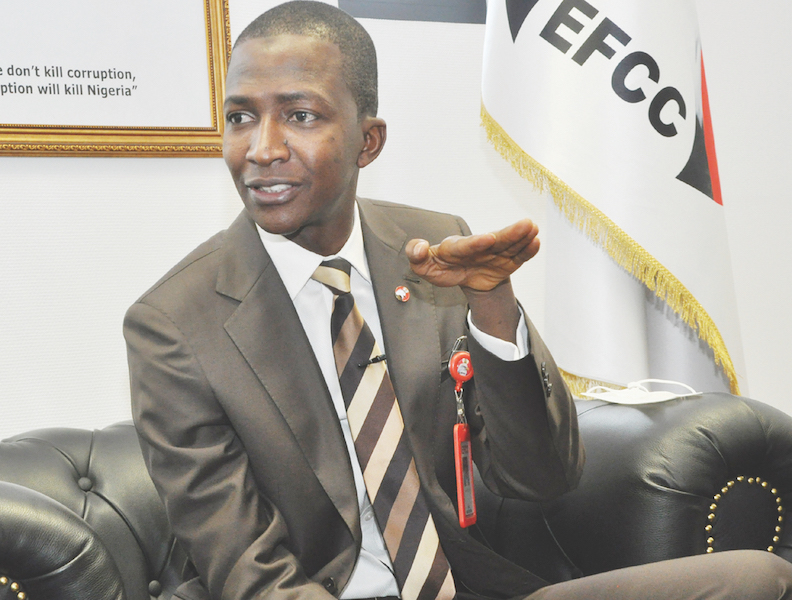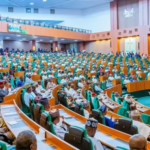Former Chairman of the Economic and Financial Crimes Commission (EFCC), Abdulrasheed Bawa, has revealed that Nigeria lost over $450 million to subsidy fraud under the Petroleum Support Fund (PSF) scheme between 2006 and 2012.
Bawa, who led investigations into the subsidy scam during his time at the EFCC, made the revelation in his new publication titled The Shadow of Loot & Losses: Uncovering Nigeria’s Petroleum Subsidy Fraud, as reported by The Cable.
In the book, Bawa explains that of the 141 companies involved in the PSF scheme, 59 were implicated in fraudulent activities, leading to losses amounting to approximately N68 billion.
He noted that 80% of the stolen funds have since been recovered, while the rest are tied to ongoing court cases or individuals who have died.
“Our probe uncovered that fraud related to the petroleum subsidy exceeded N68 billion—equivalent to over $450 million—committed by 59 companies involved in the scheme. Additionally, we discovered false claims worth N19.6 billion involving unknown traders,” Bawa wrote.
He also cited an attempted scam involving forged documents to manipulate shipping dates on bills of lading in order to claim higher subsidy payouts.
The manipulation, which would have cost the country N9.4 billion, was ultimately unsuccessful due to procedural safeguards.
Bawa pointed out that while the scheme began without incident in 2006 and 2007, major frauds started surfacing from 2008 onward, with 2011 recording the highest losses at over N41 billion.
He described 2011 as the peak of subsidy fraud in the country.
According to him, the massive financial losses hindered Nigeria’s ability to invest in key sectors such as education, healthcare, and infrastructure, and further contributed to growing budget deficits.
Bawa also revealed that between 1999 and the present, Nigeria has spent around N16.5 trillion on fuel subsidies.
He stated that a significant part of this amount was siphoned through false claims and theft.
“Over the past 25 years of civilian governance, Nigeria has spent about N16.5 trillion on subsidies. A considerable portion of this went to fraudulent claims and unearned payouts, weakening our economy and limiting development,” he said.
He explained that the country’s mounting debt, partly driven by subsidy payments, has led to fiscal instability.
He also linked the diversion of subsidised fuel to black markets and foreign markets to persistent shortages and inflation.
Bawa criticized the Petroleum Products Pricing Regulatory Agency (PPPRA) for issuing import permits to companies lacking experience or capacity, describing the practice between 2010 and 2011 as a “gold rush” driven by political patronage.
He added that the subsidy regime peaked in 2011 when Nigeria paid N2.1 trillion in subsidies.
Following the EFCC’s investigation and heightened public scrutiny, the amount dropped to N1.35 trillion in 2012, despite an increase in petrol prices.
“Between the scheme’s launch and 2012, a total of N5.755 trillion was disbursed in fuel subsidy payments,” Bawa noted, highlighting the financial burden it placed on the country and the urgent need for reform.











Leave a Reply